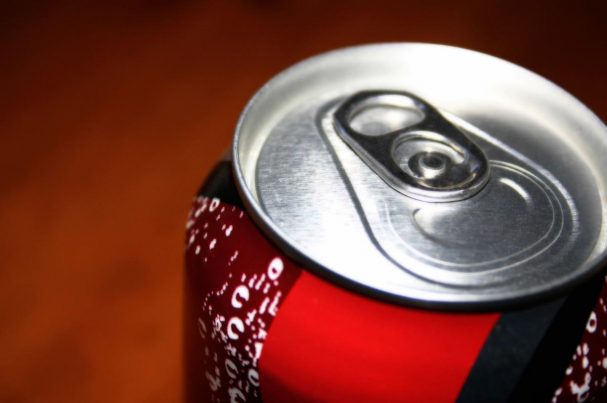
Nearly 20,000 cases of Dr. Pepper Zero RECALLED for containing sugar: The hidden truths of diet soda
Tuesday, June 17, 2025 by Olivia Cook
http://www.products.news/2025-06-17-dr-pepper-zero-recalled-for-containing-sugar.html

- Nearly 20,000 cases of Dr. Pepper Zero were recalled in three states for containing sugar, despite being labeled “zero sugar,” posing a serious risk for people with diabetes or those managing sugar intake.
- Common diet soda ingredients, such as aspartame, sucralose and phosphoric acid, are linked to health concerns ranging from blood sugar issues and heart problems to mood swings and gut imbalance.
- Studies connect regular diet soda use to higher risks of diabetes, heart disease, kidney issues, tooth decay and even preterm birth and childhood obesity when consumed during pregnancy.
- Artificial sweeteners can confuse your metabolism and brain chemistry, increasing cravings and disrupting the “reward system” – possibly leading to overeating or weight gain.
- Healthier swaps, like sparkling water, herbal teas and fruit-infused drinks, offer refreshment without the hidden trade-offs. The safest bet? Stay close to nature when quenching your thirst.
In May 2025, the Pepsi Beverages Company voluntarily recalled cases of Dr. Pepper Zero, distributed in Florida, Georgia and South Carolina. The issue? The soda, labeled as a “zero sugar” product, actually contained sugar – enough sugar to endanger people with medical conditions that require strict sugar avoidance.
The U.S. Food and Drug Administration (FDA) classified the recall as a Class II, meaning it could cause temporary or medically reversible health consequences. For people managing diabetes, that is no small risk.
But let’s be honest. Even if this recall was a one-off mistake, it reveals a more persistent problem – a trust gap between what’s on the label and what these drinks are doing inside your body.
Why people choose diet soda
Diet sodas promise what seems like the best of both worlds – the taste of sweetness without the sugar, the buzz without the bloat. They are often marketed to those who are managing weight, controlling diabetes or blood sugar, reducing calorie intake and seeking “healthier” beverage choices.
With catchy terms like “zero,” “light” or “diet,” these drinks are positioned as smart swaps for soda lovers trying to be mindful. But what makes them sweet? The answer: artificial sweeteners, chemical sugar substitutes like aspartame, saccharin, sucralose or “natural” ones like stevia.
Though these sweeteners technically don’t raise your blood sugar, they aren’t metabolically neutral. They interact with your body and brain in surprising ways – some of which may increase long-term health risks.
Here’s a closer look at what the science says about diet soda’s most concerning risks.
Type 2 diabetes
Surprisingly, regular diet soda consumption has been linked to an eight to 13 percent higher risk of developing Type 2 diabetes. Artificial sweeteners may interfere with how your body regulates insulin and blood sugar. They also increase cravings, potentially leading to overeating of sugary foods.
Heart disease and high blood pressure
Several studies have found connections between daily diet soda intake and increased risks of elevated blood pressure, heart disease and stroke. Some researchers believe sweeteners affect the lining of blood vessels and trigger inflammation, a known precursor to cardiovascular disease.
Kidney health
Diet soda drinkers have shown twice the risk of developing chronic kidney disease if they drink more than seven cans per week. Ingredients, like phosphoric acid, can raise the acid load on kidneys and some sweeteners may trigger oxidative stress.
Preterm delivery and childhood obesity
Pregnant women who consume diet sodas face an 11 percent higher risk of preterm delivery and their babies may be twice as likely to become overweight by age one. Sweeteners may alter fetal metabolism or set early taste preferences that predispose children to sugar addiction.
Tooth decay
No sugar doesn’t mean no damage. Diet sodas are highly acidic, thanks to additives like citric and phosphoric acid, which wear down tooth enamel and increase the risk of cavities, just like sugary sodas.
Osteoporosis
In women, particularly, daily consumption of diet cola has been linked to lower bone mineral density. The combination of caffeine and phosphorus may interfere with calcium absorption, weakening bones over time.
Gut microbiome disruption
Artificial sweeteners can throw off the delicate balance of your gut microbiome. This gut imbalance (dysbiosis) may reduce blood sugar control, increase inflammation and even influence mental health and weight gain.
Cancer concerns
In 2023, the International Agency for Research on Cancer (IARC) of the World Health Organization (WHO) classified aspartame as a “possible carcinogen.” Though not conclusive, studies have linked it to blood cancers and liver tumors in animals. This adds to the growing concerns that long-term exposure could carry unknown risks. (Related: Aspartame declared a POSSIBLE CARCINOGEN by WHO cancer arm, but regulatory agencies still insist it’s safe.)
Liver health
Some research shows that replacing sugary drinks with diet soda may reduce fatty liver disease buildup but other studies suggest artificial sweeteners could still impact lipid (fat) metabolism and liver stress. The data is mixed, but caution is warranted.
Depression
Several observational studies suggest that people who drink four or more diet sodas daily may have a 30 percent risk of depression. Whether through gut brain interactions or dopamine disruption, the mood altering potential of artificial sweeteners is worth watching.
Healthy alternatives
If you’re ready to reduce your reliance on diet sodas – or ditch them entirely – there are plenty of better-for-you beverages to enjoy:
- Sparkling water with lemon, lime or berries
- Herbal teas, hot or iced for a caffeine-free kick
- Kombucha, with natural fizz and probiotic benefits – just watch the sugar
- Fruit-infused water with cucumber, mint or citrus slices
- Plain water, upgraded with fancy glassware and a twist of zest
Are you ready to rethink your drink? The truth is, diet soda’s health halo is starting to fade. While it is marketed as a “guilt-free indulgence,” the science tells a more complicated story – one of mislabeled risks, metabolic confusion and marketing over medicine.
The recent recall of “mislabeled” Dr. Pepper Zero shows that even labels can’t always be trusted. And when we zoom out, the real issue becomes clear. Consumers have been sold the illusion of a health-conscious soda that isn’t all that healthy.
Watch this video about the health risks associated with diet soda.
This video is from the Daily Videos channel on Brighteon.com.
More related stories:
Natural sweeteners: Healthy alternatives to sugar and artificial sweeteners.
Biologist calls sodas and fizzy beverages ‘evil.’
Sources include:
Tagged Under: Tags: artificial sweetener, aspartame, badfood, badhealth, Dangerous, deception, diet soda, Dr. Pepper Zero, FDA, food supply, frankenfood, grocery, health science, ingredients, junk food, porducts, Recall, stop eating poison, sweeteners, zero sugar truth
RECENT ARTICLES


The hidden dangers of sodium gluconate in personal care products
By Zoey Sky

Dubai’s viral chocolate craze sparks food safety concerns in the U.K.
By Belle Carter

General Mills ditches artificial colors in cereals and school foods
By Cassie B.

The hidden risks of disodium pyrophosphate in cosmetics and its impact on health
By Zoey Sky
COPYRIGHT © 2017 PRODUCTS NEWS


